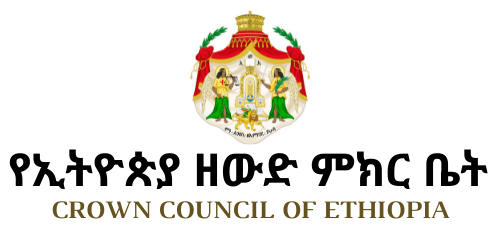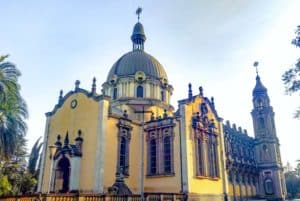By Dave Marks Miami Times, April 14-20, 2004
Claiming the stability of East Africa is important for strategic global interests, Prince Ermias Sahle-Selassie Haile Selassie of Ethiopia addressed an audience of Pan-Africanists and people concerned about Africa last week at Florida international University. [Prince Ermias] is the President of the Ethiopian Crown Council and a grandson of the former Ethiopian ruler Haile Selassie I.
Since being deposed in 1974, the Ethiopian royal family has lived in exile. But [Prince Ermias] still lobbies on behalf of Ethiopian interests and for the greater interests of the region historically referred to as the Horn of Africa. He hopes to find receptive audiences and seeks to force policy makers to consider the Crown’s point of new.
The Horn is traditionally an important sea route as a large part of world trade goes through the Suez Canal and Red Sea. [Prince Ermias] told The Miami Times: “In the war against terrorism, it’s a strategic location where different forces are converging.”
One of [Prince Ermias]’s major concerns is Ethiopia’s relationship with their northern border nation Eritrea. There has been a volatile situation between the two nations, as Eritrea became independent from Ethiopia, and the two nations had a costly war in the l990s.
[Prince Ermias] felt Eritrea is in economic decline and he accused them of training mercenaries to try to attack and destabilize Ethiopia. “Eritrea wants international sup¬port.” said [Prince Ermias]. “That’s why they will attack.”
With Eritrea being a volatile situation in the north, Ethiopia is currently landlocked without a seaport. [Prince Ermias] felt that without Ethiopia being able to enter into port agreements with neighboring Somaliland and Djibouti, Ethiopia’s economy will be destabilized.
Djibouti was seen as a good alternative by [Prince Ermias], since they are friendly with the U.S. and assisting in the war on terrorism. Somaliland presents a problem. Although [Prince Ermias] would like to see Ethiopia enter into a port agreement with them, Somaliland is not recognized as a separate nation from Somalia.
Somalia is the southern half of the territory and a former Italian colony, but there is no government in Somalia. Somaliland is the northern half that was ruled colonially by the British, but it has a stable government that broke away from the south in 1991. However it is not recognized.
“Africa’s wealth has been its curse, that’s why it’s attracted outside exploitations, said [Prince Ermias]. We must promote awareness. education and people-to-people dialogue. Some countries are moving toward& that but it will take some time.”
Many in the audience at Florida International University seemed to be interested in the whole “Selassie Rastafari Lion of Judah” aspect of the Crown.
That has been referred to popularly as Rastafarianism, as a religion/movement that seems to have strong roots in Jamaica and was made more popular by the late international reggae superstar Bob Marley. [Prince Ermias] seemed to shy away from questions from audience members that seemed to back the belief that his grandfather is to be deified. There was also slight controversy when two female students spoke out at the question and answer session and tried to suggest to everyone in attendance that they should be worshipping Jesus alone.
[Prince Ermias] felt the Crown can play a role in contributing to a better understanding between Ethiopia and Eritrea. He also felt the Crown should have a place in future Ethiopian society, but he would not like to see the old monarchy return, he believes in democracy.
We have to use the best of our traditional cultures, but make a climate where democracy can thrive.” said [Prince Ermias].








